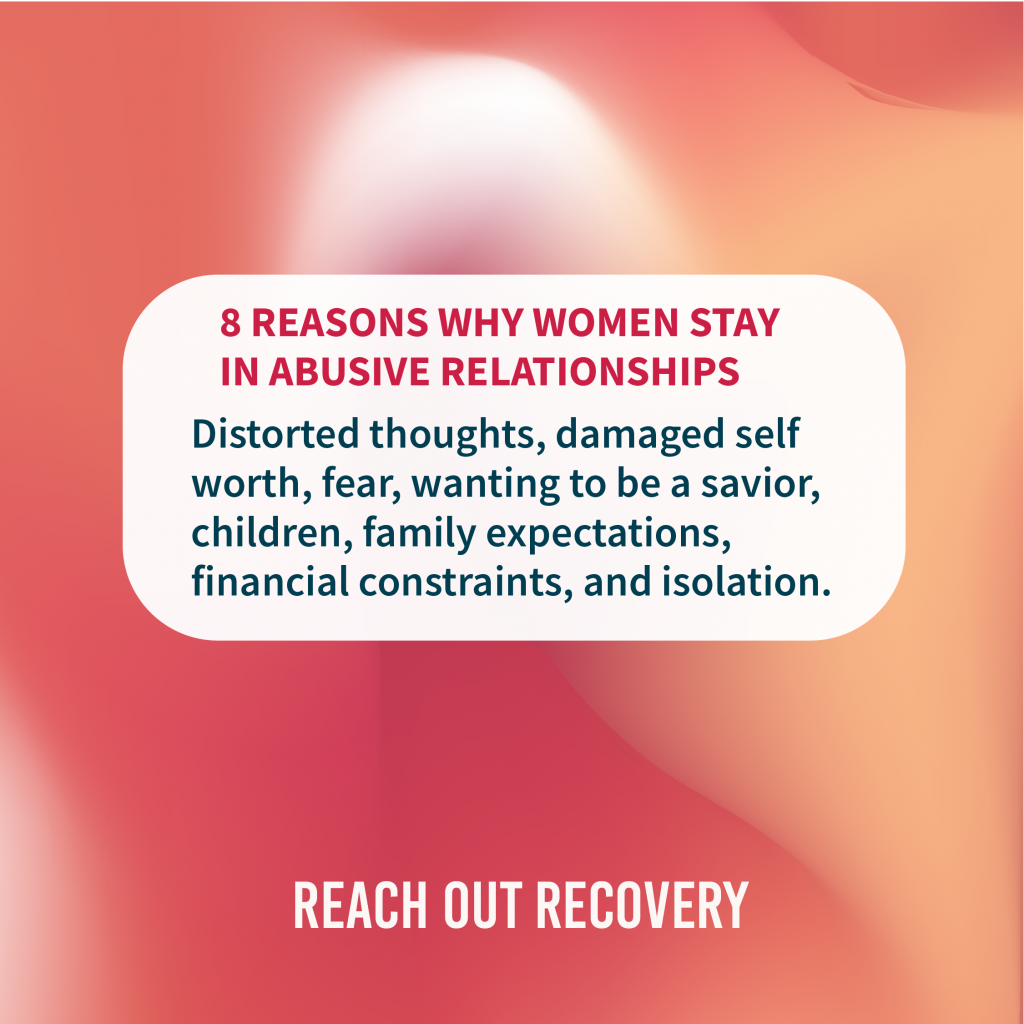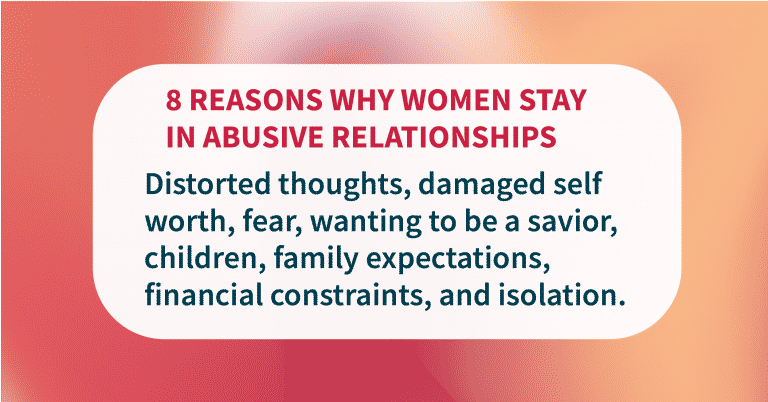
It’s difficult leaving abusive relationships. Those who haven’t experienced this kind of abuse don’t understand the emotional grip these abusers have on their victims. It’s more than making the choice to run – plenty of planning in secret has to go into creating an escape route. Some victims don’t have the option of turning to family or friends, which makes it that much more difficult. But it is 100% possible.
It’s no mystery why so many women can’t leave abusive relationships. But you may be confused about whether or not you are actually in one. Do you feel bad or frightened all the time? Are you walking on eggshells in your relationship? You’re not alone. According to the CDC, one in three women and one in four men have been victims of physical abuse. For one in five women and one in seven men the abuse is severe, yet many take a long time to admit it or simply refuse to leave an abusive partner. Take a look at the four stages of abuse. Read more here.
Leaving abusive relationships can feel impossible
But it’s totally possible and necessary. There is always someone to turn to. Just please keep in mind that if you are in immediate danger, call emergency services (911 for USA). Your safety is number one. Often, abusers will isolate their victims from friends and family. This makes it that much more difficult for their targets to escape and allows them to have full control. Remember that you’re not alone. If you’re looking to leave, reach out to a trusted relative or friend (safely and probably from a phone the abuser doesn’t know about). There’s more power in numbers and these trustworthy people can help steer you in the right direction and get you to safety.
What are some steps to take when looking to leave?
Always make sure you are safe. Connect with a friend or relative, secure your finances (use cash to avoid any trails a credit or debit card may leave), don’t tell the abuser you want to leave – there are many steps to consider. And there are many resources you can turn to such as the National Domestic Violence Hotline, which is available 24/7.
These toxic relationships are dangerous emotionally, physically, and mentally, which is why anyone who finds him/herself trapped in one should immediately find a way out – your safety should always come first. Be sure to proceed with caution. While leaving a true narcissist is tricky, it is possible. Read HERE for more in-depth tips to help you or a loved one escape an abuser.
**If you are in an abusive relationship or someone you know is, call the 24-hour National Domestic Violence Hotline at 1-800-799-7233. For more information, click here.
*Be sure the abuser doesn’t know about any preparations to leave; create a plan which includes preparing clothes, cash, food, and a destination; join a domestic violence survivors group to discuss the situation and feelings; make sure someone knows about the situation; call the hotline for help from a payphone or someone else’s; if you’re/someone you know is in immediate danger, call 911/the authorities.





















